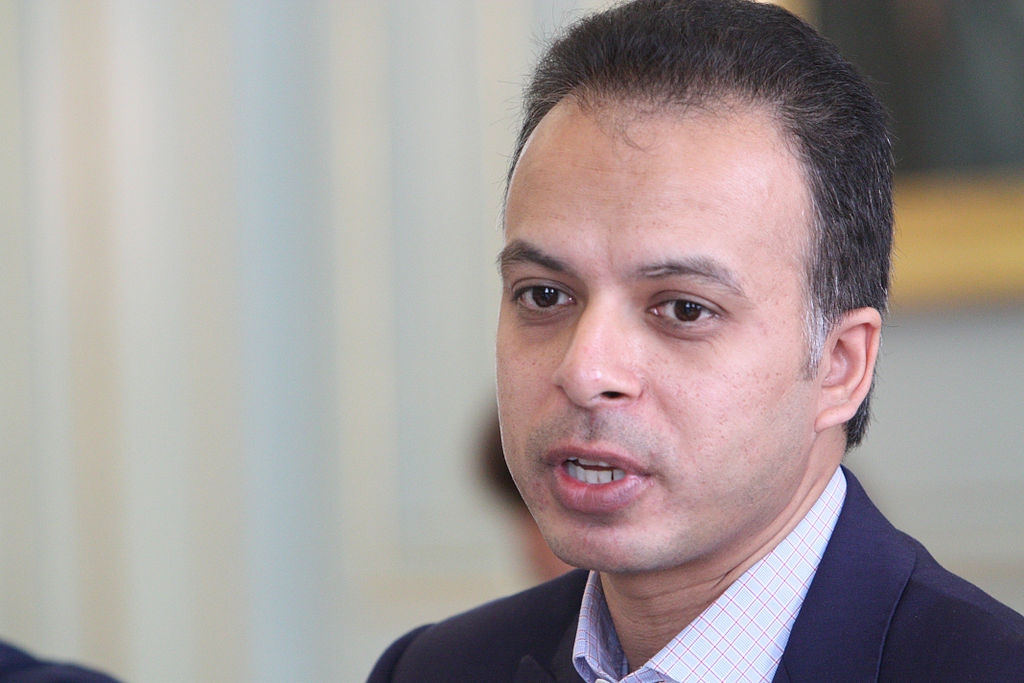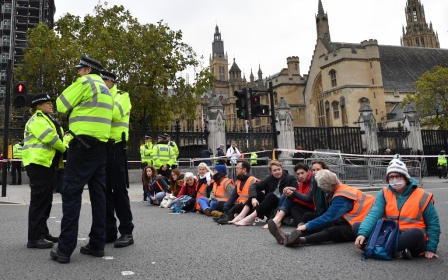High Court rules Ed Husain defamed MCB official Miqdaad Versi in tweet

The High Court in London has ruled that a tweet sent by the author and commentator Ed Husain had defamed a senior leader of the Muslim Council of Britain.
Husain, also known as Mohammed Mahbub Husain, founded the defunct Quilliam foundation and advised former British Prime Minister Tony Blair for several years.
In November 2020, Husain posted a tweet that claimed Miqdaad Versi, a Muslim Council of Britain spokesperson who leads the council's media monitoring unit, was "pro-Hamas and pro-Iran".
'For too long, there are some who have smeared with impunity ordinary Muslims. This judgement puts an important stake in the ground'
- Miqdaad Versi, MCB
The tweet Husain sent appeared as a "quote tweet" in November 2020, which included a screenshot of a tweet posted by Versi, who criticised Conservative journalist Fraser Nelson over the way his magazine, the Spectator, covered Muslims and Islam.
Husain later deleted his tweet but contested Versi's claims in court and told the judge to read 15 tweets beyond the immediate thread as context. These included a tweet by British parliamentarian Zarah Sultana, followed by tweets from Versi, which criticised French President Emmanuel Macron and France's policies towards Muslims.
New MEE newsletter: Jerusalem Dispatch
Sign up to get the latest insights and analysis on Israel-Palestine, alongside Turkey Unpacked and other MEE newsletters
But last Friday, His Honour Judge Lewis ruled in a preliminary trial that he was "satisfied that the natural and ordinary meaning conveyed by the tweet was defamatory by the standards of the common law".
Lewis dismissed Husain's calls to read the 15 tweets and Sultana's tweets and said it was not "relevant context when considering the meaning of the tweet".
"Whilst stating that a person holds some of the views identified in the tweet would not in itself be defamatory, the tweet needs to be looked at in its entirety," said Lewis.
"Right-thinking members of society generally would deplore those who express views in support of Hamas, as a militant Islamist group with known links to violence.
"Attributing such views to the claimant would lower a person in the estimation of 'right-thinking people generally'. The imputation is one that would tend to have a substantially adverse effect on the way that people would treat the claimant, and their attitude towards him."
A further hearing will determine if Versi will receive compensation of at least £25,000 from Husain and an injunction that prevents the republication of Husain's defamatory tweet
'Words have consequences'
Commenting on the judgement, Versi welcomed the verdict and said: "For too long, there are some who have smeared with impunity ordinary Muslims. This judgement puts an important stake in the ground.
"Such lines of attack against ordinary Muslims should not be deployed. I hope Ed Husain learns his lesson and that media outlets who treat him as an expert and reasonable interlocutor on issues related to Muslims, acknowledge what this shows about Ed Husain's judgement."
Versi's lawyer, Zillur Rahman of Rahman Lowe Solicitors, described the verdict as a "very important finding".
In a statement on his website, Rahman said: "We worked extremely hard in tracing Mr Husain to ensure that he did not escape from justice. Words have consequences, and Mr Husain must now face accountability for this."
Mark Henderson, a barrister from Doughty Street Chambers who represented Versi in court, also added in a statement: "The judgment is notable for its rejection of an ambitious case by Mr Husain on Twitter context.
"It held that in the fast-paced medium of Twitter, the ordinary reader will gather sufficient information to understand what the tweet is about but will not look any further.
"The case also involved the extent to which general knowledge contributed to the defamatory meaning, and it addressed the distinction between the range of views protected by freedom of expression in a diverse society and the behaviours or views that are contrary to common, shared values of society."
Middle East Eye delivers independent and unrivalled coverage and analysis of the Middle East, North Africa and beyond. To learn more about republishing this content and the associated fees, please fill out this form. More about MEE can be found here.





